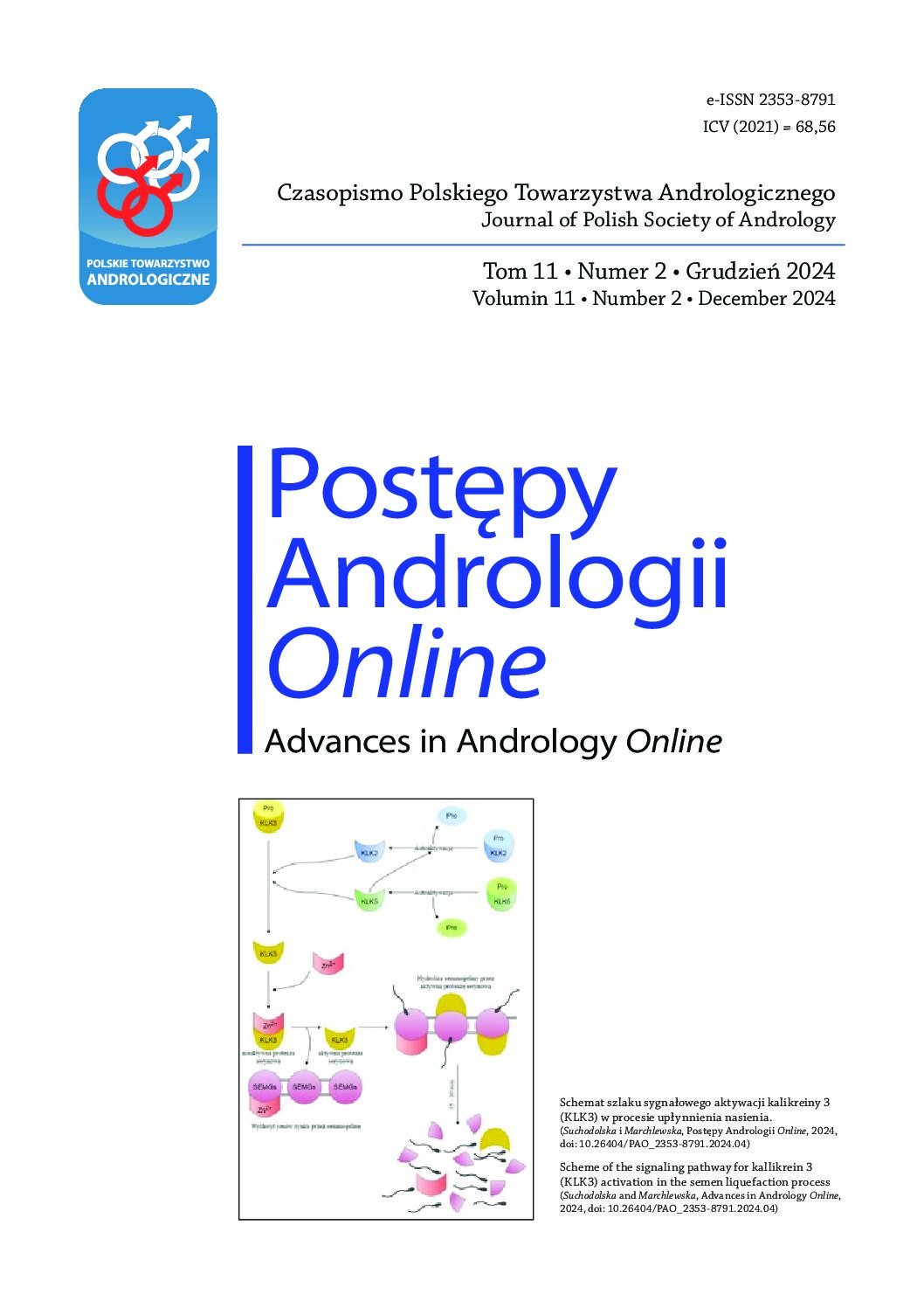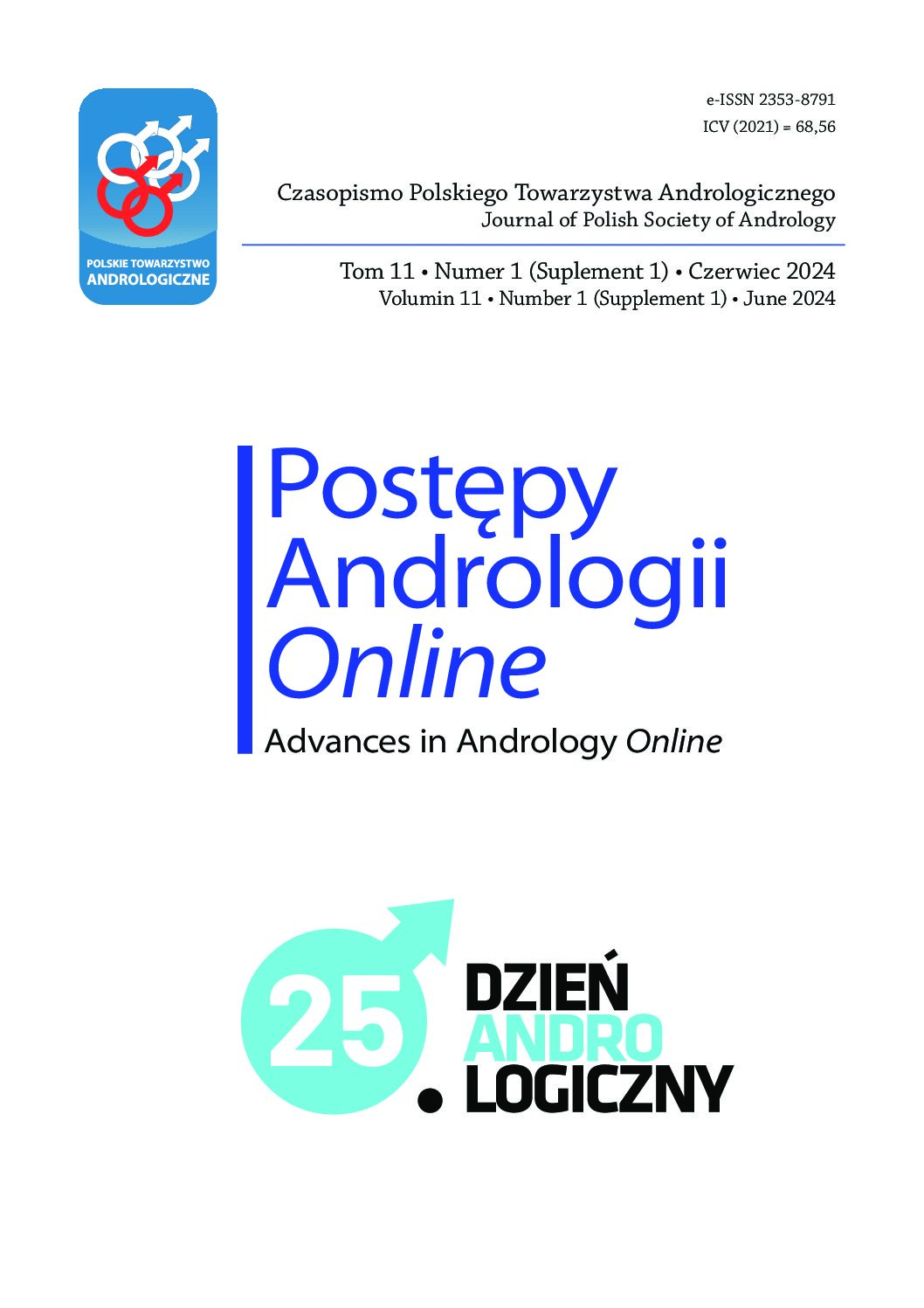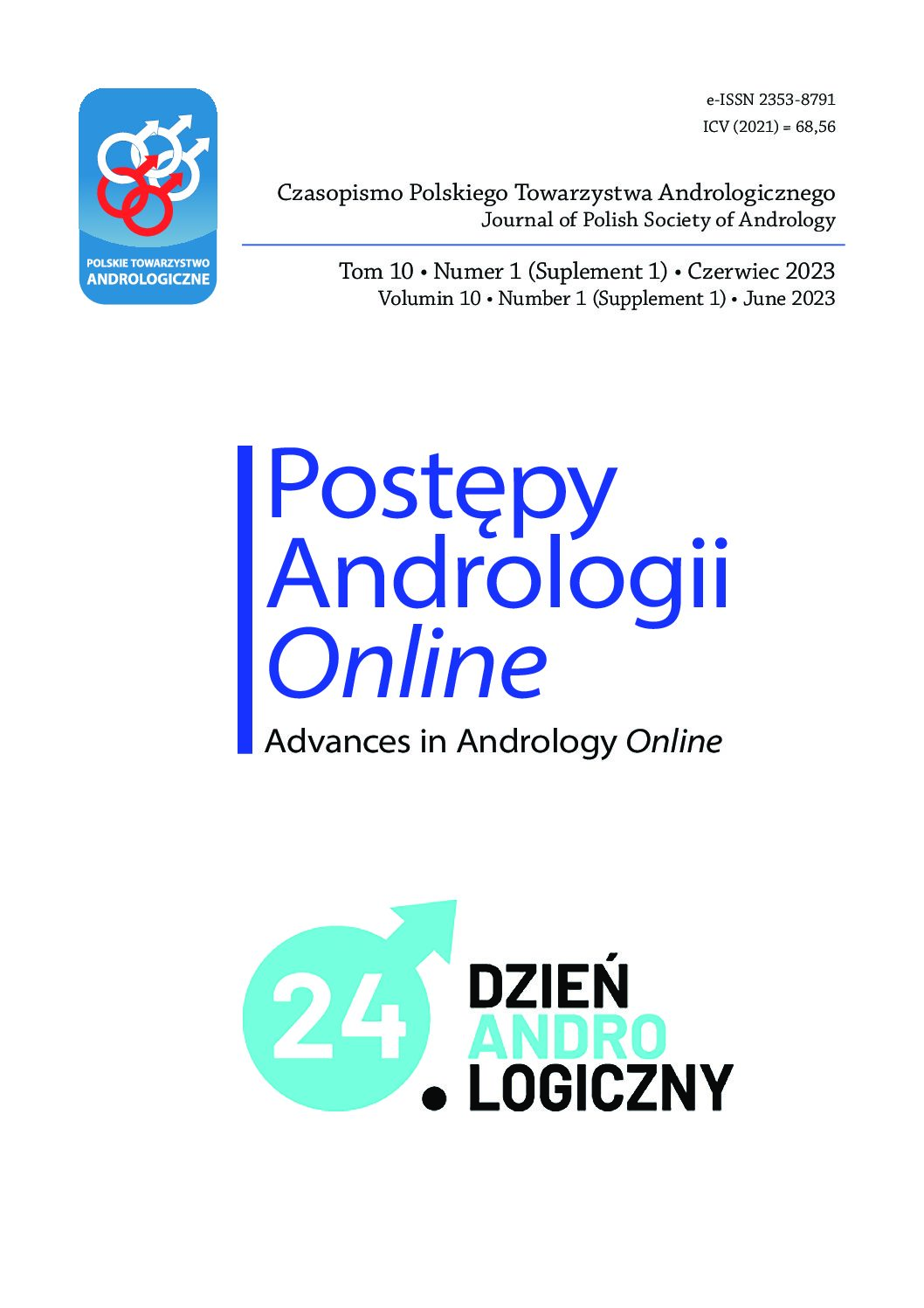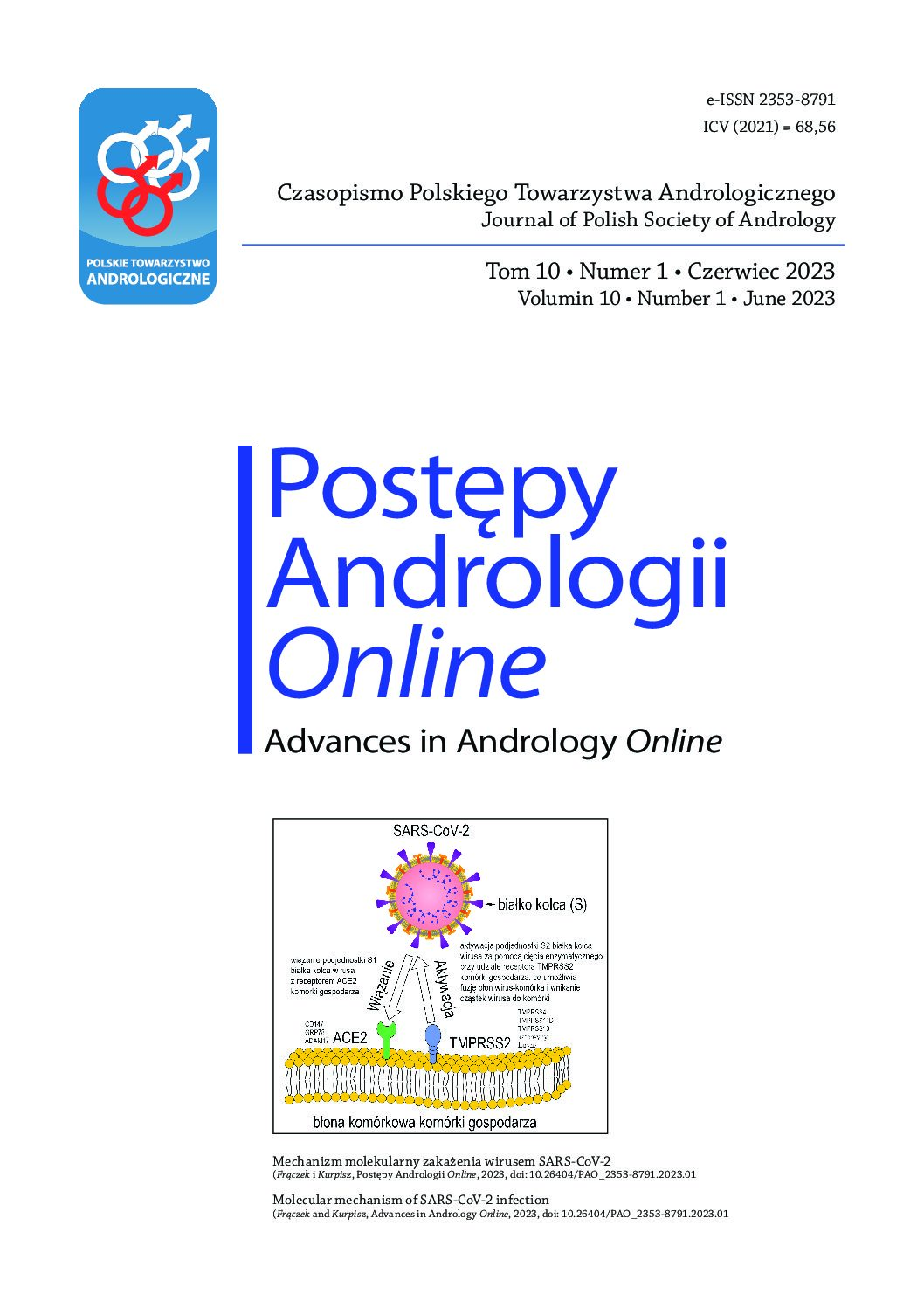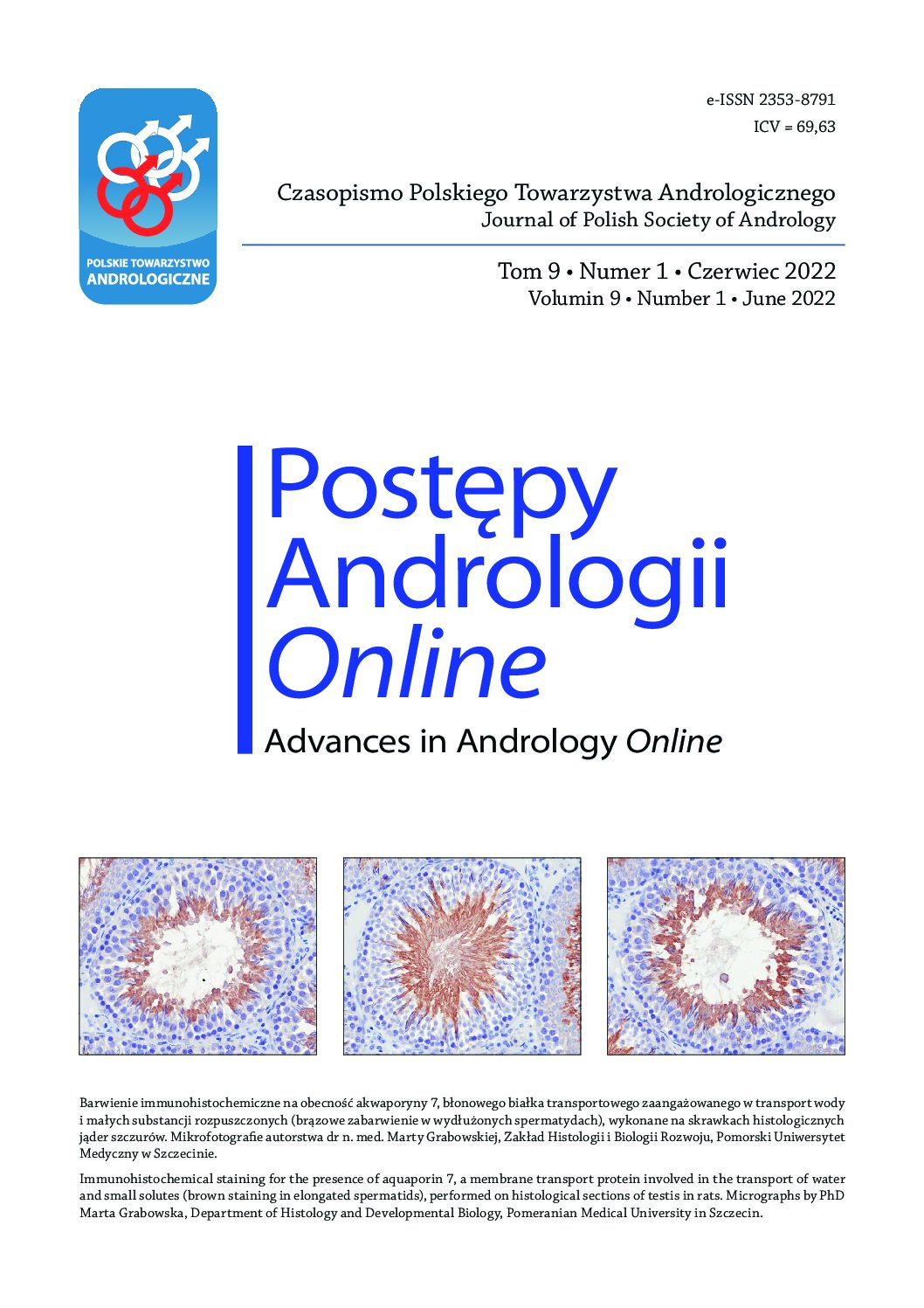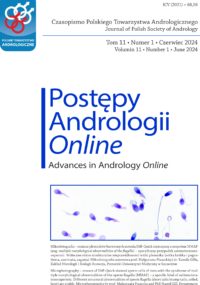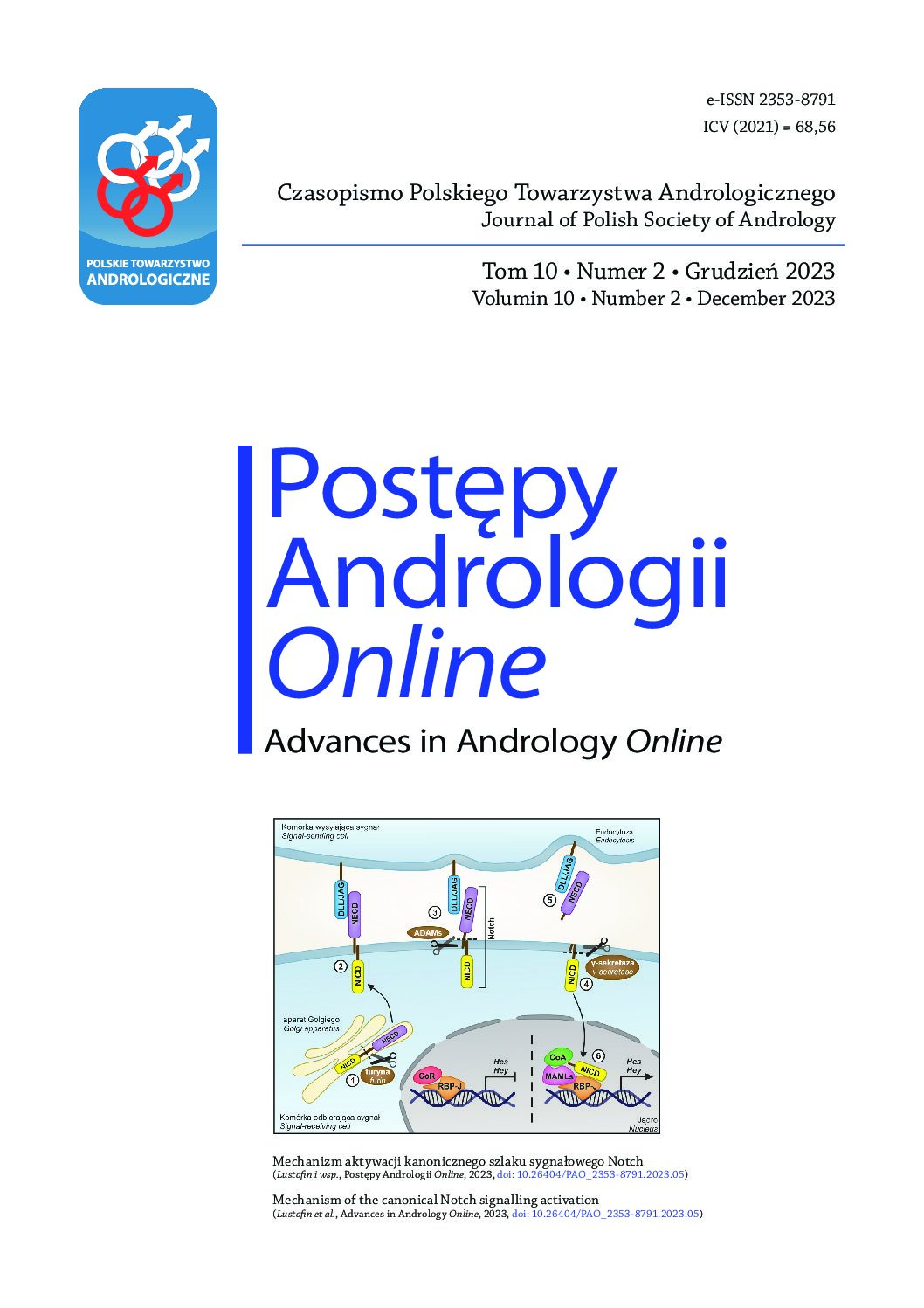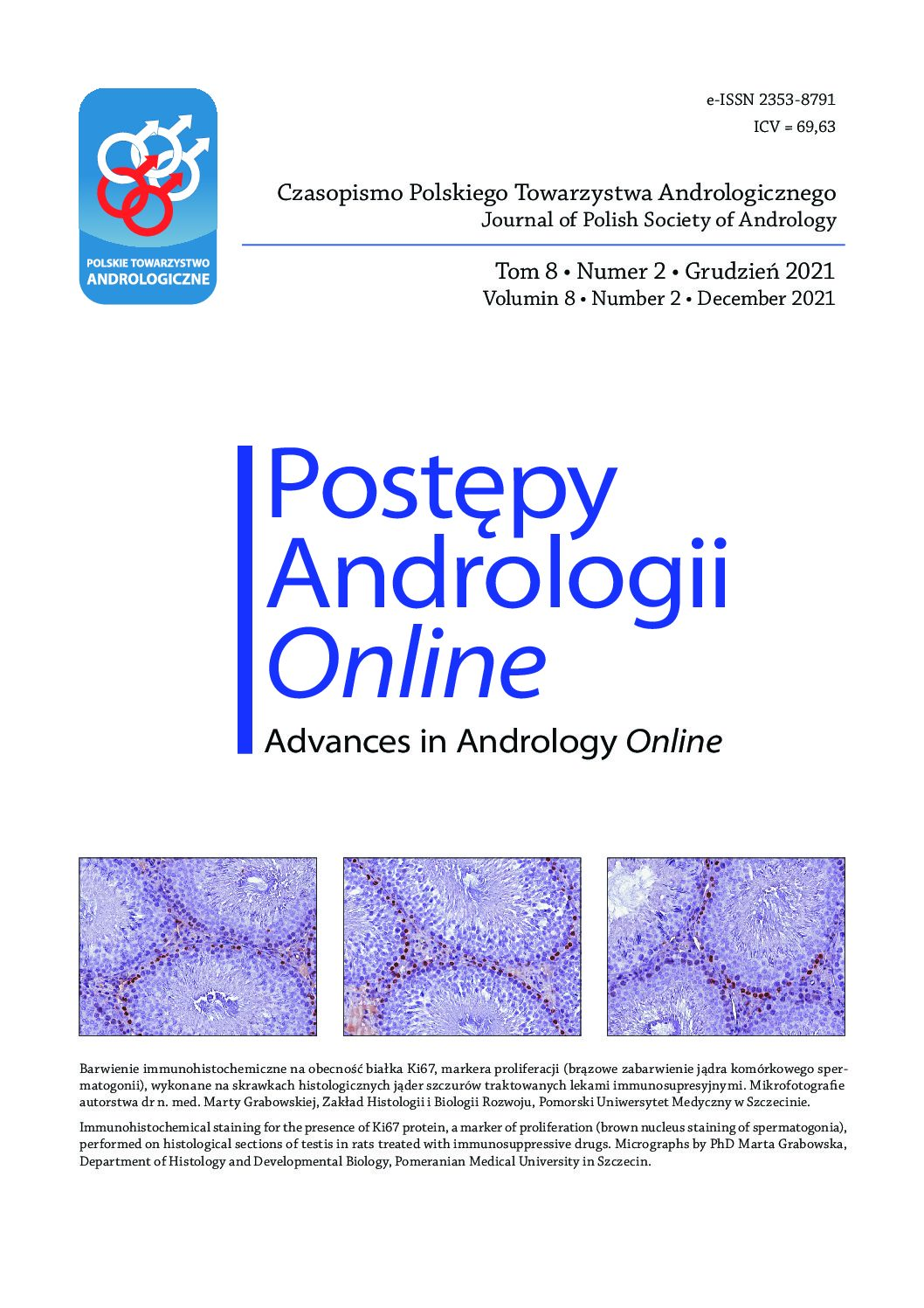The influence of immunosuppressive agents on male reproductive system
The presented article summarizes the current knowledge about the potential impact of immunosuppressive agents on the hypothalamic-pituitary-gonadal axis, male gonad, epididymis and prostate. The information is mainly obtained from animal studies with the use of immunosuppressive drugs (cyclosporin A, tacrolimus, rapamycin, mycophenolate mofetil and prednisone), the most commonly used in clinical practice in organ transplant recipients. However, the results of experimental studies are not always consistent. Most of the scientific reports refer to the male gonad. In the interstitial tissue of the gonad fibrosis, edema, capillary congestion and a decrease in the Leydig cell volume were observed. In addition, reduced diameter of the seminiferous tubules and their atrophy, vacuolization and disorganization of the seminiferous epithelium, abnormal spermatid development, reduced phagocytic activity of Sertoli cells, exfoliation of germinal cells into the lumen of the tubule, as well as a decrease in sperm cells count were found. It should be noted that immunosuppressants have an detrimental effect on sperm cells not only through the male gonad, but also through impaired epididymal function, which may lead to decrease in epididymal sperm cell concentration, motility and morphology. In turn, the negative effect of immunosuppressive drugs on the prostate is manifested by a reduction of the lumen of the glands, atrophy of their epithelium and reduction of secretory capacity, as well as atrophy of stromal components. The described abnormalities may be of clinical relevance for male fertility. Unfortunately, most of the available studies concern the effects of single immunosuppressive drugs on the male reproductive system, however in patients after organ transplantation monotherapy is used extremely rare. In clinical practice, treatment is most often based on 3-drug regimens, therefore it is a justified need for research to determine the effect of these regimens on male fertility. It seems that in patients planning fatherhood, some modifications of immunosuppressive treatment protocols should be considered, which would increase the chances of reproductive success. However, it should be emphasized that conversion of treatment is not always recommended, as it is more important to maintain the proper functioning of the transplant than to improve the patient’s reproductive capacity.
